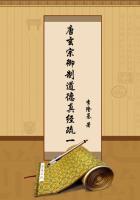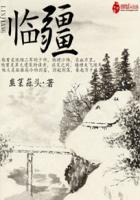'Cambrensis in the twelfth century says, the Irish then musically expressed their griefs; that is, they applied the musical art, in which they excelled all others, to the orderly celebration of funeral obsequies, by dividing the mourners into two bodies, each alternately singing their part, and the whole at times joining in full chorus. . . . The body of the deceased, dressed in grave clothes, and ornamented with flowers, was placed on a bier, or some elevated spot. The relations and keepers (SINGING MOURNERS)ranged themselves in two divisions, one at the head, and the other at the feet of the corpse. The bards and croteries had before prepared the funeral Caoinan. The chief bard of the head chorus began by singing the first stanza, in a low, doleful tone, which was softly accompanied by the harp: at the conclusion, the foot semichorus began the lamentation, or Ullaloo, from the final note of the preceding stanza, in which they were answered by the head semichorus; then both united in one general chorus. The chorus of the first stanza being ended, the chief bard of the foot semichorus began the second Gol or lamentation, in which he was answered by that of the head; and then, as before, both united in the general full chorus. Thus alternately were the song and choruses performed during the night. The genealogy, rank, possessions, the virtues and vices of the dead were rehearsed, and a number of interrogations were addressed to the deceased; as, Why did he die? If married, whether his wife was faithful to him, his sons dutiful, or good hunters or warriors?
If a woman, whether her daughters were fair or chaste? If a young man, whether he had been crossed in love; or if the blue-eyed maids of Erin treated him with scorn?'
We are told, that formerly the feet (the metrical feet) of the Caoinan were much attended to; but on the decline of the Irish bards these feet were gradually neglected, and the Caoinan fell into a sort of slipshod metre amongst women. Each province had different Caoinans, or at least different imitations of the original. There was the Munster cry, the Ulster cry, etc. It became an extempore performance, and every set of keepers varied the melody according to their own fancy.
It is curious to observe how customs and ceremonies degenerate.
The present Irish cry, or howl, cannot boast of such melody, nor is the funeral procession conducted with much dignity. The crowd of people who assemble at these funerals sometimes amounts to a thousand, often to four or five hundred. They gather as the bearers of the hearse proceed on their way, and when they pass through any village, or when they come near any houses, they begin to cry--Oh! Oh! Oh! Oh! Oh! Agh! Agh! raising their notes from the first OH! to the last AGH! in a kind of mournful howl.
This gives notice to the inhabitants of the village that a FUNERAL IS PASSING and immediately they flock out to follow it.
In the province of Munster it is a common thing for the women to follow a funeral, to join in the universal cry with all their might and main for some time, and then to turn and ask--'Arrah!
who is it that's dead?--who is it we're crying for?' Even the poorest people have their own burying-places--that is, spots of ground in the churchyards where they say that their ancestors have been buried ever since the wars of Ireland; and if these burial-places are ten miles from the place where a man dies, his friends and neighbours take care to carry his corpse thither.
Always one priest, often five or six priests, attend these funerals; each priest repeats a mass, for which he is paid, sometimes a shilling, sometimes half a crown, sometimes half a guinea, or a guinea, according to their circumstances, or, as they say, according to the ability of the deceased. After the burial of any very poor man, who has left a widow or children, the priest makes what is called a COLLECTION for the widow; he goes round to every person present, and each contributes sixpence or a shilling, or what they please. The reader will find in the note upon the word WAKE, more particulars respecting the conclusion of the Irish funerals.
Certain old women, who cry particularly loud and well are in great request, and, as a man said to the Editor, 'Every one would wish and be proud to have such at his funeral, or at that of his friends.' The lower Irish are wonderfully eager to attend the funerals of their friends and relations, and they make their relationships branch out to a great extent. The proof that a poor man has been well beloved during his life is his having a crowded funeral. To attend a neighbour's funeral is a cheap proof of humanity, but it does not, as some imagine, cost nothing.
The time spent in attending funerals may be safely valued at half a million to the Irish nation; the Editor thinks that double that sum would not be too high an estimate. The habits of profligacy and drunkenness which are acquired at WAKES are here put out of the question. When a labourer, a carpenter, or a smith, is not at his work, which frequently happens, ask where he is gone, and ten to one the answer is--'Oh, faith, please your honour, he couldn't do a stroke to-day, for he's gone to THE funeral.'
Even beggars, when they grow old, go about begging FOR THEIR OWNFUNERALS that is, begging for money to buy a coffin, candles, pipes, and tobacco. For the use of the candles, pipes, and tobacco, see WAKE.
Those who value customs in proportion to their antiquity, and nations in proportion to their adherence to ancient customs, will doubtless admire the Irish ULLALOO, and the Irish nation, for persevering in this usage from time immemorial. The Editor, however, has observed some alarming symptoms, which seem to prognosticate the declining taste for the Ullaloo in Ireland. In a comic theatrical entertainment, represented not long since on the Dublin stage, a chorus of old women was introduced, who set up the Irish howl round the relics of a physician, who is supposed to have fallen under the wooden sword of Harlequin.















